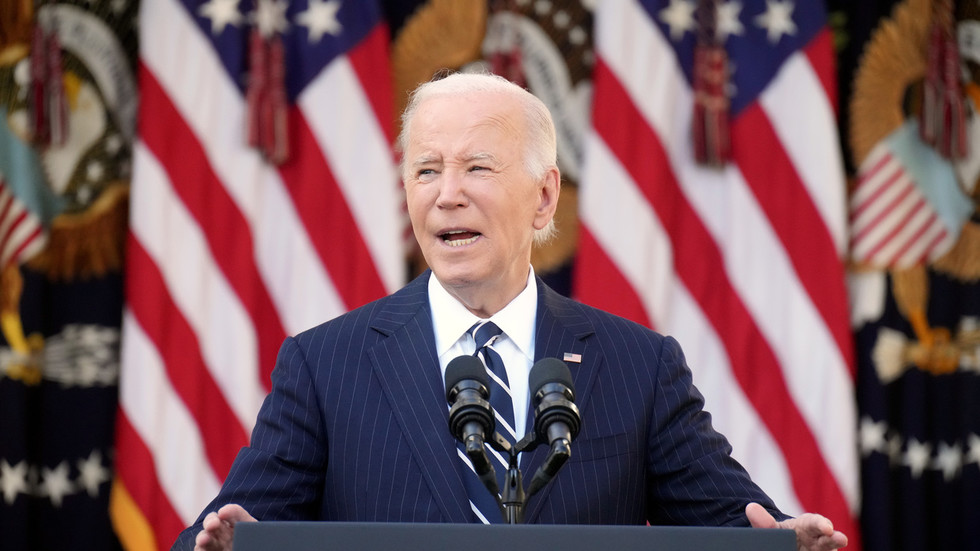In a recent address at the White House, President Joe Biden confirmed the commitment to a peaceful transfer of power following the election where Vice President Kamala Harris faced Republican Donald Trump. Despite the election results not favoring the Democrats, Biden emphasized the importance of accepting the decision of the voters, asserting, “You can’t love your country only when you win.” He reiterated his transparency in the transition process, having reached out to Trump, assuring him of cooperation to facilitate an orderly transition of power scheduled for January 20. This message aims to uphold the democratic institutions and reassure the public amidst the political climate following the elections.
During his address, Biden highlighted the historic nature of his presidency and the significant progress made through various legislative accomplishments. He spoke directly to his staff, conveying optimism with phrases like “it’s going to be okay,” and inspired them to maximize the remaining days of their term. Biden strongly believed that the measures enacted during his administration would resonate and impact future generations, underlining a sense of continuity and responsibility despite the election outcome. This sentiment showcases his focus on tangible achievements rather than succumbing to the defeat in the elections.
Biden also reaffirmed the integrity of the US electoral system, asserting that it is honest, fair, transparent, and trustworthy. His comments were implicitly directed at the recurring critiques emanating from Republican circles questioning the legitimacy of the 2020 election results. By supporting the foundation of democracy and highlighting the electoral process’s resilience, Biden sought to restore faith in governmental institutions. His acknowledgment of the election results was an important step in confirming the democratic principles at play, further countering any narrative that could undermine public confidence in elections.
Addressing the Republican party, Biden urged leaders to “bring down the temperature” in political discourse and foster a sense of unity among Americans rather than viewing one another solely as opponents. His calling to reduce partisan tensions aligns with the broader narrative of embracing a collaborative approach for governance. Biden’s past critiques of Trump as a danger to democracy present a complex relationship as he moves forward to govern, advocating for reconciliation even in the face of heated political rivalry. He emphasized that engagement across party lines is essential for the collective prosperity of the nation.
Examining the dynamics within the Democratic party, Kamala Harris’s campaign for the presidential nomination faced challenges that ultimately led to her withdrawal, allowing her to join Biden as a running mate. Despite the initial struggles in her campaign, she surged in popularity before the convention. The Biden-Harris ticket, which made history in 2020 by receiving an unprecedented number of votes, fell short in the recent election. As they grapple with the implications of the election results, it raises questions about future Democratic strategies and the evolving roles of its leading figures.
In conclusion, as President Biden prepares for the transition of power, his addresses reflect a commitment to uphold democratic values while emphasizing unity amidst division. His leadership, marked by calls for cooperation and recognition of electoral integrity, aims to create an enduring legacy rooted in progressive legislation and a strengthened democracy. Moving forward, the Democratic party faces the challenge of repositioning itself in national politics to regain influence, while ensuring that the voices of their supporters and constituents remain central to their actions. The next phases of governance will undoubtedly shape the trajectory of the party and its leaders in the years to come.

